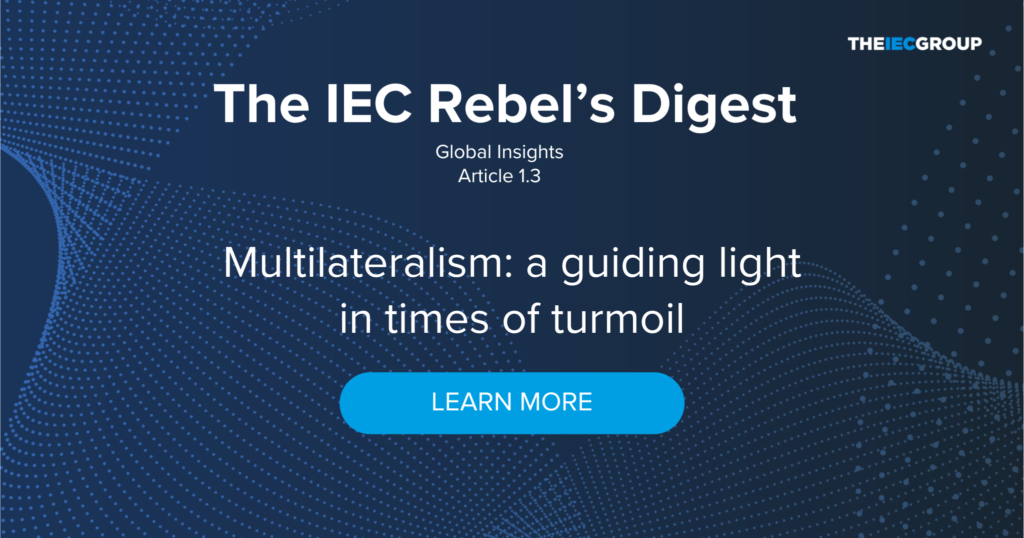Introduction
Geopolitics wields unprecedented influence on international business. Amid this, rules-based multilateralism emerges as a stable guide, shaping governance and standards. As nations align with global norms, they become safer markets for expansion.
Companies can gauge adherence through organizations like World Justice Project and Transparency International, vital for informed growth decisions, but is this enough? The Ukraine example illustrates that today’s stable may be tomorrow’s war zone, and that location strategy requires a risk management strategy.
If it wasn’t clear enough already, the Ukraine war is proof that the tide of globalisation is strongly going through turmoil.
As the exodus of international brands from Russia and the woes of Chinese technology firm Huawei have shown, geopolitics matters. It matters more now than it has in several decades.
But there is a very tangible international fabric that can help firms seeking global growth to identify and focus on the markets and geographies where such geopolitical risks are low.
That structure is what is called rules-based multilateralism and, in many respects, it is what keeps our global order in … well … order.
Where globalisation generally deals with markets, multilateralism is mostly about issues of governance and standards. Multilateralism is the product of cross-border agreements on policy, common standards and legal structures.
Multilateral organisations set standards and regulate industries in ways that, literally, allow our modern world to operate. Organisations such as the International Telecommunications Union (ITU) or the World Intellectual Property Organisation (WIPO), for instance, deal with a world of complexity and detail.
Rules-based multilateralism also helps protect the interests of small countries against large ones and in doing so helps to de-risk them as potential expansion targets. It helps to guide conduct and counterbalance big power bilateralism and unilateralism.
It establishes not only the rules and structures of day-to-day engagement, but the means and pathways to resolve disputes.
The new frontier of rules-based multinationalism is addressing pressing issues such as climate change and ESG, both of which have been embraced as causes by many international and local businesses.
While the most powerful of countries are often tempted to pursue unilateralism in their dealings, the war in Ukraine has proven that in times of crisis, multinationalism and engagement with the international order is not only desirable but necessary.
For companies seeking international growth and making risk-based market selection decisions, understanding levels of engagement with, and adherence to, such global standards is vital.
Countries that actively support and engage with such efforts and abide by global rules are countries with shared understandings and shared ambitions and are inherently safer as expansion markets than those that do not.
So, how could this understanding be applied practically for companies planning international expansion?
Almost every country in the world are members of multilateral organisations such as the UN (190 members at the time of writing) and WIPO (193 members). Russia was famously chairing the UN Security Council when it invaded Ukraine, so simple membership of such bodies is not much of a guide to behaviour.
In the case of both, however, you can drill down further to see who are signatories to the various international protocols that help protect lives, rights and property.
The Madrid Protocol, for instance, governs and protects trademarks internationally. It has 114 members covering 130 countries.
Thankfully, there are organisations which analyse adherence, as opposed to lip service, to such things as the rule of law. The World Justice Project, for instance, evaluates and ranks the actual performance of 140 countries across both criminal and civil law and produces reports on individual countries.
Transparency International has a similar list ranking countries by how corrupt they appear to be.
https://www.transparency.org/en/cpi/2022
Such lists can and should be used by companies to triangulate their international risk exposures and to make better informed expansion decisions.


